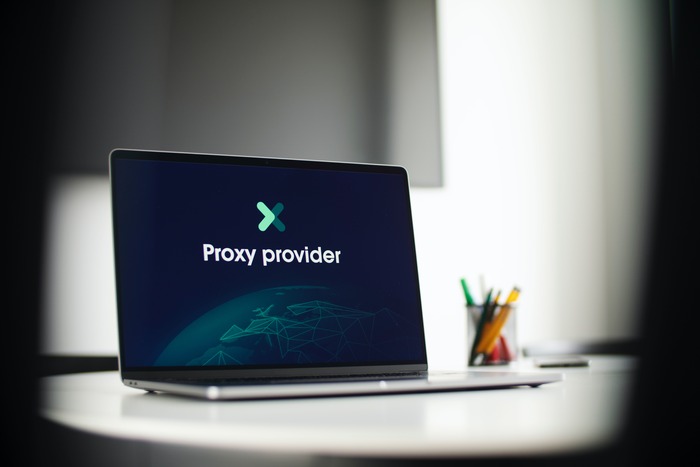Running an e-commerce business requires constant market monitoring, including customers and competitors. You can’t improve your products or services and boost conversions and sales without relevant, accurate, up-to-date e-commerce data.
Let’s see why e-commerce monitoring and price comparison are vital yet challenging and how proxies can streamline the processes.

Why are e-commerce monitoring and price comparison vital for e-commerce businesses?
Staying on top of the latest trends in consumer demand and behavior helps drive continual growth. When you know what your target customers like, dislike, and need, you can address their pain points and make high-converting marketing and sales strategies. You can personalize their experience, become proactive, and generate more leads and sales.
Monitoring the competition helps e-commerce businesses fill market gaps and stand out. Identifying their strengths, weaknesses, product information, marketing strategies, and pricing opens the door to profit-generating decisions.
Comparing competitors’ prices enables you to lower yours strategically for more profit. After all, competitive pricing attracts more customers.
Real-time pricing data also empowers you to develop dynamic pricing strategies and maximize profits.
Collecting relevant e-commerce data with web scraping
Web scraping is the best method for gathering relevant, up-to-date e-commerce data, including market trends, consumer preferences, and competitive intelligence. It automates data harvesting, extracting public data from competitors’ websites, social media platforms, and other sources to help you enhance business performance.
For instance, you can collect customer reviews, competitors’ sales performance metrics, product information, and pricing details. You can even set up a MAP (Minimum Advertised Price) monitoring system to ensure your partner vendors and resellers comply with your pricing policies.
Challenges e-commerce businesses face when scraping the web
Scraping the web for relevant e-commerce data brings several challenges, including:
- Geo-restrictions – You can’t extract data from websites that implement geo-blocking for users in your region. You can’t even view their content.
- Anti-scraping mechanisms – Many sites rely on IP blocking, CAPTCHA tests, honeypot traps, and other anti-bot measures to prevent web scraping.
- Dynamic content – Websites that change their content and layout depending on user location are the most challenging to scrape. They prevent you from accessing accurate localized data like pricing.
These obstacles don’t need to stand in your way. You can overcome them with proxy servers.
What are proxy servers?
Proxy servers are intermediary servers between your web browser (client) and servers hosting the websites you visit.
Whenever your browser sends an HTTP request to access specific content, these server apps route it through their network. That way, the target server detects only the proxy server’s IP address, making yours undetectable.
How proxies overcome web scraping difficulties
Since proxies use vast IP address pools, they can help you bypass geo-blocking and scrape data from any restricted website. You only need to select a server location in the desired country or city to change your virtual location.
That also helps gather accurate localized data from dynamic websites. You can say goodbye to sites redirecting you to pages you don’t need. You can collect correct pricing and other information for informed business decisions.
You can even enjoy real-time data tracking ( combining your proxy with a web scraper API) for higher data quality and integrity.
Proxy servers are also excellent for avoiding CAPTCHAs, honeypot traps, IP bans, and other anti-scraping measures. For instance, residential proxies use home-based IP addresses, tricking target servers into seeing your web crawlers and scrapers as organic users. That way, they can’t trigger anti-bot systems.

What are US proxies?
US proxies are proxy servers with extensive networks across the US. They let you use state and city-level targeting to access localized data.
A US proxy redirects your HTTP requests from a US-based IP address, helping you harvest data like a US citizen. Below we’ll delve deeper into how that empowers e-commerce monitoring and price comparison.
Empowering e-commerce monitoring and price comparison with US proxies
US proxies let you gather public data without target websites blocking your IP address. Some even rotate IP addresses—periodically or for every HTTP request. That means unlimited concurrent sessions without IP bans or CAPTCHAs. That’s perfect for large-scale web scraping.
Staying on top of e-commerce trends and pricing across locations is a breeze without geographical limitations and anti-scraping measures. You can gather valuable intelligence and sharpen your competitive edge.
Conclusion
Gathering pricing intelligence and monitoring product data, consumer trends, and MAP policy violations are challenging, ongoing processes. Web scrapers can automate them, but proxies can take them to the next level.
They can take limitations out of the equation, helping you get reliable information for continual business growth. Moreover, geo-targeted solutions like US proxies enable you to extract localized data for better market understanding.
Whether conducting heavy-duty web scraping across the US or using city-level targeting to research a smaller market, a US proxy will help you uncover fresh, accurate data for informed business decisions.
